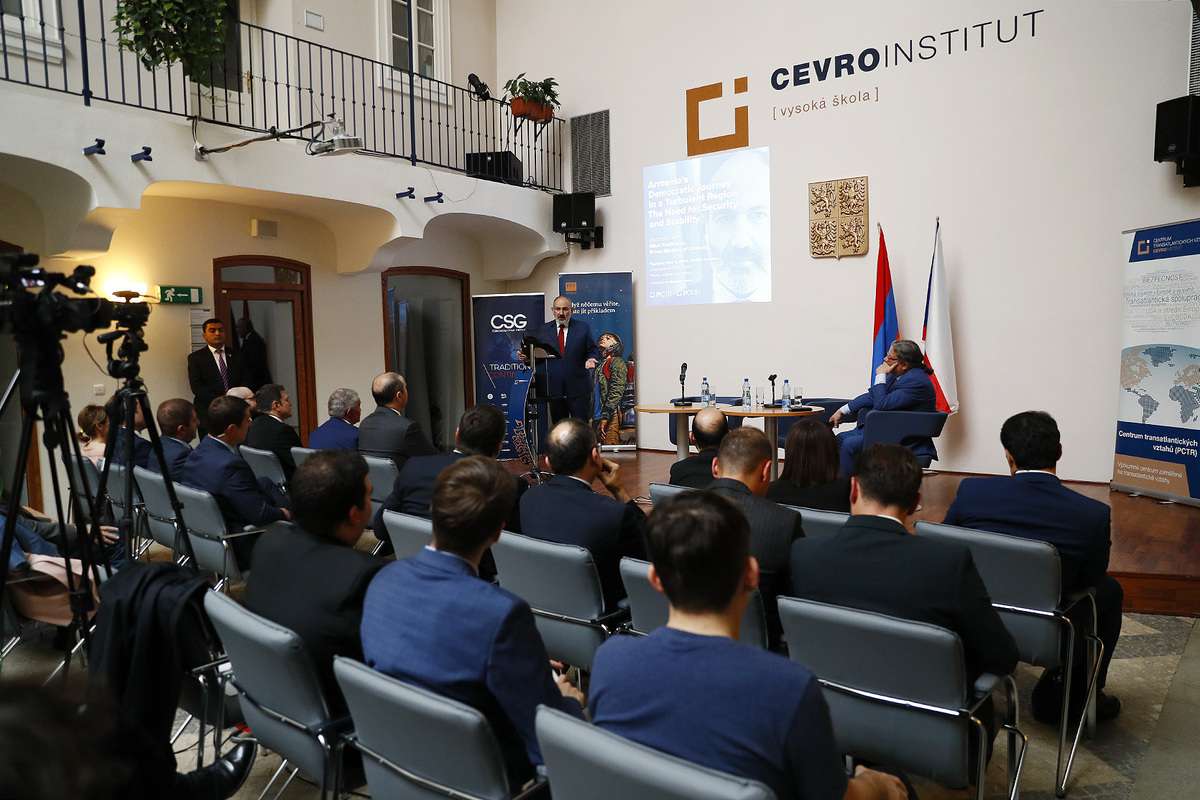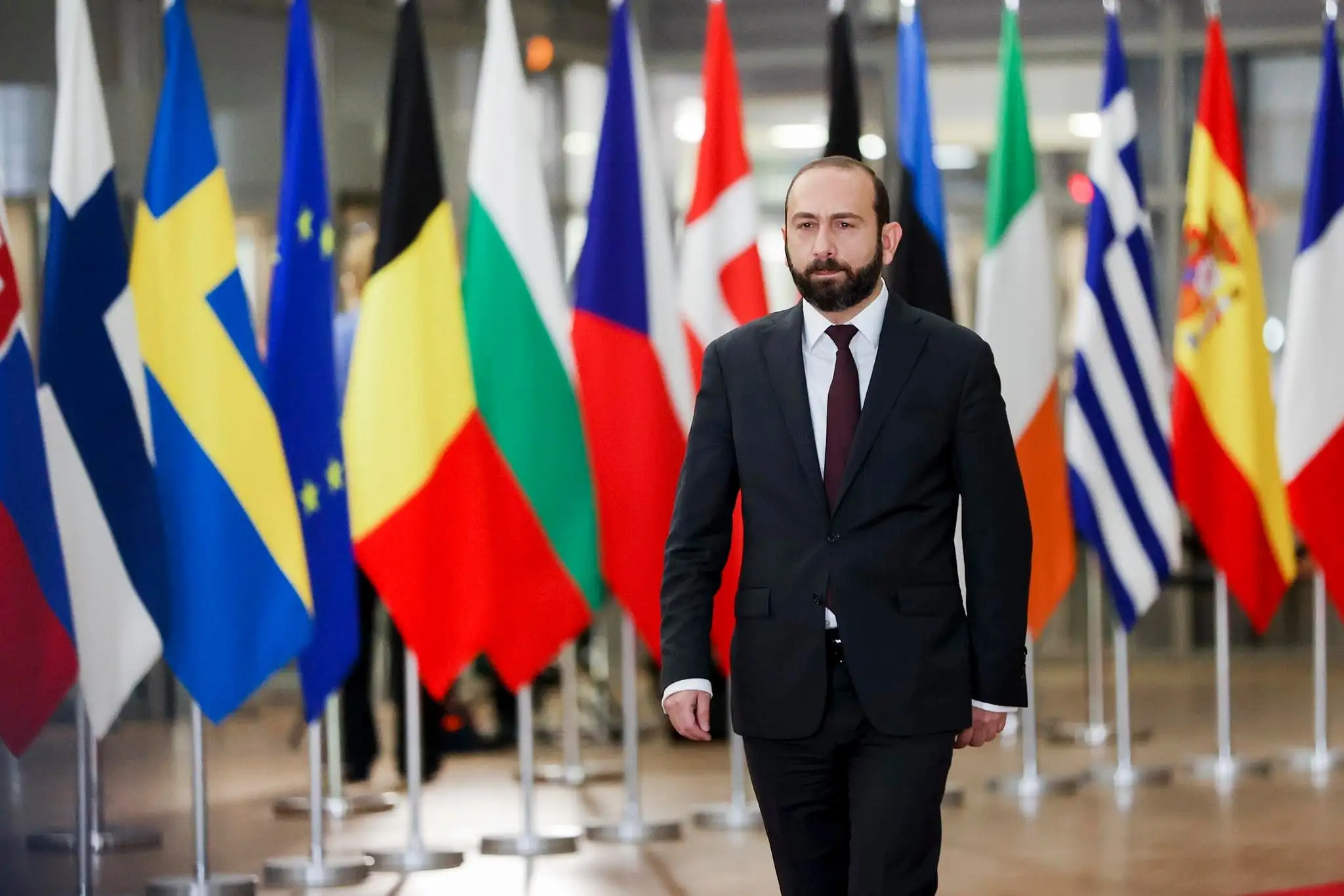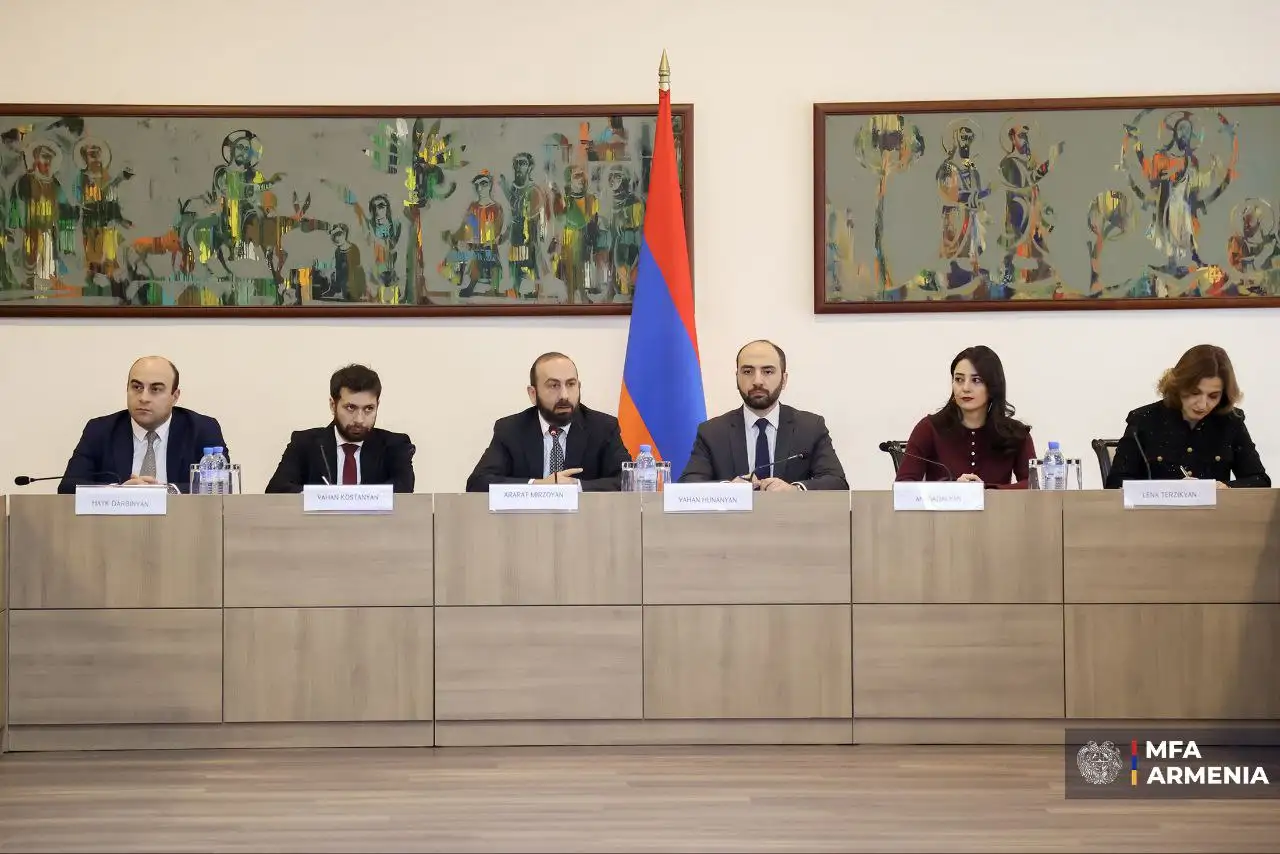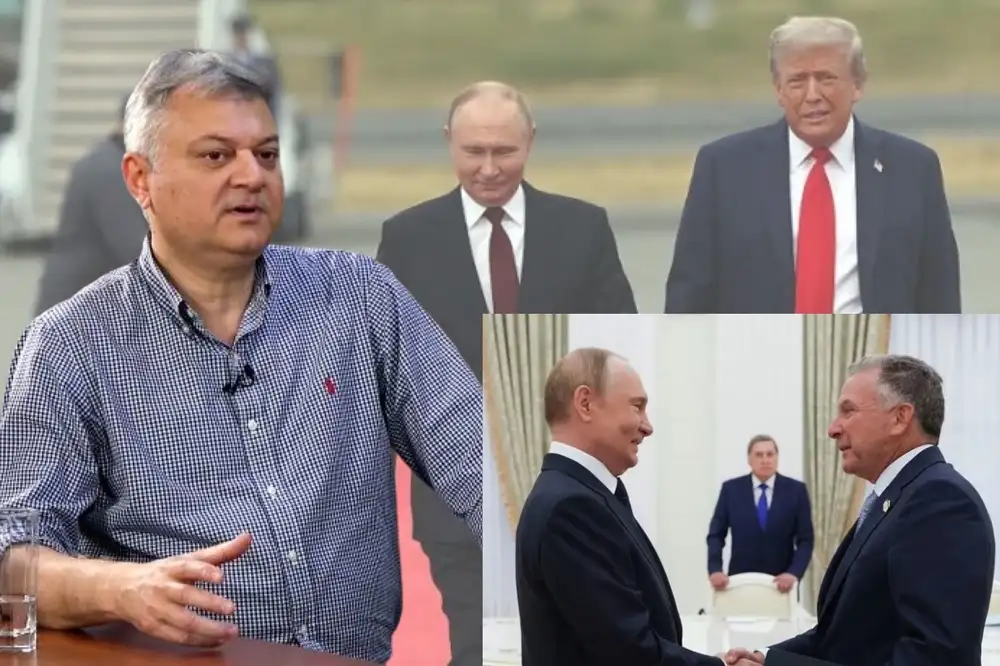Prime Minister Nikol Pashinyan visited the Transatlantic Relations Center in Prague, where he gave a speech and answered the questions of representatives of expert circles. Tomasz Poyar, National Security Adviser, attended the meeting with the Prime Minister of the Czech Republic, Alexander Vondra, the center's director, and Czech Parliament's members.
In his speech, the Prime Minister, in particular, noted.
"I am glad to be here today and to address this distinguished audience. And I would like to thank Mr. Alexander Vondra and his team for organizing and hosting this event.
Armenia has traditionally friendly relations with the Czech Republic based on shared values and is ready to expand cooperation in all areas of mutual interest. My visit coincides with the 30th anniversary of establishing diplomatic relations between our countries. Over the past 30 years, Armenia and the Czech Republic have built a robust bilateral agenda covering various areas, including active political dialogue and partnership in multiple areas of mutual interest.
Today, I would like to talk about Armenia's democratic journey in a region marked by upheaval and uncertainty and present to you Armenia's progress in building a stable democracy in the face of many challenges.
Armenia's commitment to democratic development results from the nonviolent revolution of 2018, which was inspired, among others, by the principles of the Velvet Revolution of former Czechoslovakia, led by Vaclav Havel.
After the revolution, my government initiated large-scale democratic reforms, which included the fight against corruption, the shadow economy, and economic monopolies. We have ensured freedom of speech and expression and turned the page on rigged elections, guaranteeing that citizens' free expression is the only legitimate source of power.
As a result, we achieved impressive economic growth: 7.6 percent in 2019, 5.7 percent in 2021, and 12.6 percent in 2022. In 2022, the number of jobs increased by about 32 percent compared to 2018. Tax revenues increased by more than 66 percent in 2022 compared to 2017. The sovereign rating of Armenia has been raised. The same can be said about Armenia's international ranking in terms of economic and democratic indicators, especially regarding freedom of speech and the protection of human rights.
Among the countries of the Eastern Partnership of the EU, our government currently leads the "Democracy and good governance" rating table in the following five areas: fight against corruption, an independent judiciary, freedom of speech and expression, freedom of assembly and association, independent media and democratic rights, elections and political pluralism.
However, the confidence of the Armenian people in democracy has been undermined by the security challenges facing Armenia in recent years.
In September 2020, Azerbaijan unleashed a war against Nagorno Karabakh. In May 2021, it invaded the sovereign territory of the Republic of Armenia. In September 2022, it launched a new large-scale attack against Armenia, occupying a part of our sovereign territory.
These incidents claimed thousands of lives, destroyed civilian infrastructure, and left many people missing and those still in Azeri captivity.
Tens of thousands of Armenians in Nagorno-Karabakh were forced to leave their homes, joining the hundreds of thousands who became refugees due to Azerbaijan's decades-long anti-Armenian policy.
As is known, the tripartite declaration of November 2020 legally defines that the Lachine Corridor should serve as a link between Armenia and Nagorno-Karabakh. However, in gross violation of the statement above, Azerbaijan implemented an illegal blockade in the Lachin corridor in December 2022, causing a humanitarian crisis in Nagorno-Karabakh. Furthermore, despite the ICC's decision to apply interim measures in February 2023, Azerbaijan has illegally installed a checkpoint in the Lachin Corridor, further exacerbating the situation.
Azerbaijan deprived the people of Nagorno-Karabakh of the right to move freely and cut off the supply of natural gas and electricity. There is a shortage of food and necessities in Nagorno-Karabakh, and they are currently being sold through vouchers.
We believe that these are not isolated actions but Azerbaijan's preparation for the ethnic cleansing of Nagorno Karabakh. In this regard, we consider it necessary to send an international fact-finding mission to Nagorno-Karabakh and Lachin Corridor. The international community should clearly and accurately assess the humanitarian crisis in Nagorno-Karabakh. This is important not only for the Armenians of Nagorno-Karabakh but also for the future of democracy in our region because of Armenia.
The main question hanging in the air in the republic is whether democracy can provide security and stability in our region.
Despite all this, our perception of this situation is guided primarily by the following democratic consideration. There is no alternative to peace in our region. Within the framework of the first summit of the European Political Community held in Prague in October 2022, we laid solid foundations for achieving peace in our region during a quadrilateral meeting with the participation of French President Macron, President of the European Council Michel, the President of Azerbaijan and myself.
The main result of that meeting was that Armenia and Azerbaijan recognized each other's territorial integrity with the territories that the two republics had at the time of independence from the Soviet Union, according to the 1991 Alma Ata Declaration, which should be the basis for further differentiation. This mutual understanding was reaffirmed at the tripartite meeting held in Sochi on October 31, 2022, where the parties emphasized that the issues between Armenia and Azerbaijan should be resolved only based on the 1991 Alma Ata Declaration and the UN Charter, renouncing force or the threat of force, from the application.
Nevertheless, Azerbaijan continues the policy of threatening the territorial integrity of the Republic of Armenia and using force and the threat of force, constantly escalating the situation on the border of Armenia and in Nagorno-Karabakh.
Despite all this, Armenia remains committed to solving the existing problems through negotiations, and we are ready to sign a peace treaty with Azerbaijan.
Currently, the main obstacles to signing such an agreement are as follows. So far, it has not been possible to agree on such a statement that would clearly state that Azerbaijan recognizes the territorial integrity of the Republic of Armenia, with an area of 29,800 square kilometers.
The mechanism for ensuring the rights and security of the Nagorno-Karabakh Armenians remains being determined. The same can be said about the format of the Stepanakert-Baku dialogue, which should take place within the framework of the international mechanism.
It has been only possible to agree on the mechanisms to overcome the differences regarding reading the peace agreement's text. And finally, there has yet to be an agreement among international agencies for implementing the peace agreement.
However, we continue our efforts to achieve success in these directions. It has been four days since the delegations of Armenia and Azerbaijan, with the support of the US, have been negotiating in Washington to resolve all these issues.
In conclusion, due to the quadrilateral meeting held in Prague on October 6, 2022, a significant development occurred in Armenia-EU relations. It was decided to deploy a short-term EU observation mission on the Armenia-Azerbaijan border. It later grew into a decision to deploy a long-term assignment in Armenia, which began operating in February.
Ladies and gentlemen, I would like to thank the Czech Republic for supporting this decision, another manifestation of support for democracy in Armenia. Thanks for your attention":
Next, the Prime Minister answered several questions from the audience related to the humanitarian crisis created in Nagorno-Karabakh, negotiations with Azerbaijan, processes taking place in the South Caucasus, and other topics.




















